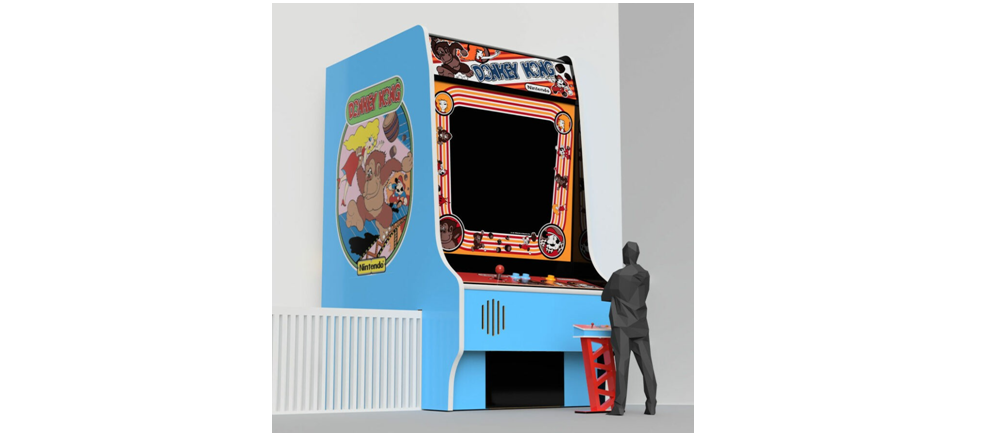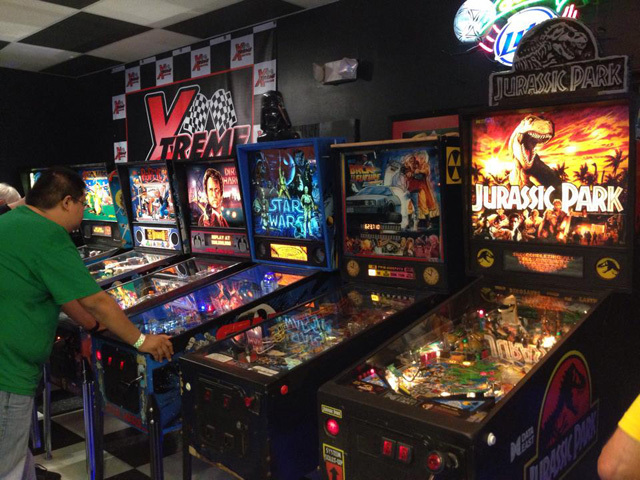It’s not uncommon to see a gaggle of teens gathered around popular arcade machines, each one of them vying for the highest score and the dominion of the whole arcade floor with nothing but sheer skill and persistence. Retro games were, arguably some of the most simple titles gameplay-wise; they offered simple-to-understand mechanics, but a significant skill ceiling, which the players had to practice and study a lot to reach. In this sense, old games idolized difficulty and skill and gave power to the players when they were good at certain games, while players that didn’t have the same amount of skill were relegated to the sidelines.
While I was never a “good” gamer; I have tons of experience with the craft. I was practically born with a controller in hand and was gaming since the early stages of my childhood. I’ve played tons of titles; and the ones I haven’t played, I’ve most likely read about and are familiar with, at the very least, their concepts. Regardless, I’ve never been one to boast high scores, excelling at the local arcade, or being the best at one of the more recent online multiplayer games. I’d much rather be along for the ride than actually being the best any given video game. Regardless, I enjoy challenging myself to the point of competing in some games, like CS:GO, Super Smash Bros or, more recently, the critically-acclaimed PUBG. In these titles, I strive to do my best and, about 50% of the times, manage to end up on top, at least in the latter game.
The thing about difficulty in video games is that, in the past, said medium was much more niche. Today, everyone can be a gamer, and that’s a good thing. However, as the crowd of gamers expands each day, so too must the mechanics of said games in order appeal to the widest possible demographic, should they desire to win over the most amount of people. No one likes to be alienated from a good game just because it is too difficult to complete; this is not a sign of good quality, it’s a sign of bad game design. If your game cannot be completed by everyone who bought it, then perhaps its design must be reformulated; unless, of course, that’s the whole point of the game. The video below is of I Wanna Be The Guy, a game that’s supposed to be unfair, hard, and inaccessible by all but the most avid and patient gamers
The above statement was rarely addressed until games like the soul series came out. Despite retro games like Castlevania, Ghosts n’ Goblins, and even our very own Pac-Man and Space Invaders being arguably harder than the titles belonging to the souls series, difficulty was rarely a “thing” in video games. Games were just these wonderful pieces of software that you would play, regardless of their difficulty and whether you were good or bad at them. When the first game of the souls series, Demon’s Souls, was released, it was immediately praised for its beautiful graphics, somber, hopeless setting, interesting narrative style, and innovative combat which revolved heavily around its stamina management system. Moreover, Demon’s Souls was also known for one other aspect, which would also set the tone for other games in the soul series which would be released in the future: its difficulty.
Demon’s Souls, and its successor, Dark Souls, marked a tendency in game design, not only for their quality in world-building, character interactions, and deep, meaningful lore which proved that games with seemingly no structured narrative, in the right hands, can work wonders at telling us a story, but also in their unrelenting difficulty which punished every mistake the player made with a gruesome end to their characters. The difficulty curve in these games was so noteworthy that, even today, new and completely unrelated games are compared to Dark Souls if they are tough enough, using phrases such as “X game is the Dark Souls of its franchise”, or “Y game is the Demon’s Souls of Z genre”.
However, in a world where the crowd of gamers is growing, and game studios struggle to appeal to wider audiences, while maintaining the love and respect of their original fans, do the games’ difficulties still validate the argument of those that are better, while perpetuating the myth that the opinion of unskilled or unaccomplished gamers should be rendered moot due to their inability to complete or advance in the games they try to review?
Well, yes and no.
The main difference between gaming in the 80’s and 90’s, and gaming today basically boils down to media coverage. Social networks didn’t exist back then, so gaming news, events, and happenings were mostly limited to establishments which offered this type of entertainment: arcades. Today, everyone can get their hands on the latest console, or build a good computer and immediately begin broadcasting their matches and gameplay to any interested parties. When someone decides to partake in video game streaming, anyone can tune in and watch your game, whether you suck at it, or not.
The prevalence of the internet at the turn of the 21st century opened the field for a wide variety of new occupations, among which we can find game journalism, the fabled occupation that every young gamer strives to perform yet, to their dismay and that of many others, only a few lucky individuals get to call themselves that. Gaming journalism is all about keeping readers and viewers apprised of the latest happenings and updates in the gaming world, whether they be new technology, the latest video games, and, among other things, interesting indie titles which, due to lack of publisher support and a limited budget, might slip under the radar. For this reason, it is expected that these professionals should, at the very least, be able to showcase the mechanics and features of games in their entirety, regardless of whether they’re demos of upcoming titles, or full games, in order to lend credibility to their reviews and commentary.
But what happens when the reviewer is out of their field in certain games or simply does not have the skill required to properly review or showcase certain games?
This predicament, in particular, is very clearly shown in game journalist Dean Takahashi’s recent review of the upcoming title Cuphead. In the video review, Takahashi is seen struggling to beat the very first level of the game, which requires that the player perform several mechanics in succession that, admittedly, are fairly simple to pull off for gamers of all ages.
While the game journalist had some pretty interesting facts to state about the game and, through his video, managed to showcase what the game has in store for its avid followers, it is immediately clear from the first minute that Takahashi was having a really difficult time clearing even the tutorial. For this reason, the gameplay video was immediately assailed by internet trolls, claiming that a person that had such troubles even in the first stage should not be qualified to give their opinions on said games. Takahashi has, since then, already issued an article apologizing to his fans and followers, and trying to elaborate on what he did wrong. However, we also went on a tangent where he fired back at his critics in what would appear to be a textual back and forth through which he addresses everything: from calling his critics “troglodytes”, to linking them to a negative political agenda.
Nevertheless, the point still stands that, when it comes to game reviews or showcases, you should at least strive to demonstrate the game in question, which is somewhat difficult when you’re stuck in the early stages of the game or even the tutorial.
Controversy aside, skill shaming is bad. Like Takahashi said, veteran gamers shouldn’t have to put other people down in order to elevate their sub-culture which fetishizes esports-level skill; people should embrace new gamers and teach them the ropes. In the same manner, making hard games for the sake of difficulty is not a smart design choice; at least, not anymore. Video games are no longer solely about skill: they now also test the players in areas other than how skillfully they can operate a controller. Some titles are meant to taste your bravery and resolve and whether you can continue despite the odds stacked against you (survival horror games), while others reward your perseverance and analytical thinking skills to find solutions to obstacles which defeat you time after time (action RPGs).
When it comes to reviewing games and game journalism, it is expected that not all of these individuals will have the skills of a cyber athlete and, to be honest, they shouldn’t have to. However, when it comes to Takahashi’s review of Cuphead, it was a very misguided attempt at humor where instead of laughs he received much criticism.
Was it his fault that the citizens of the internet foster intolerance and enjoy criticizing anyone that is not an absolute expert in a field he claims has been working on for over 2 decades now? Probably not; no one deserves that kind of backlash, at least not from a gameplay video of an upcoming video game.
Nevertheless, I’m pretty sure Mr. Takahashi will certainly think twice before releasing any future “bad” gameplay videos for comedic effect.





